| Listing 1 - 10 of 63 | << page >> |
Sort by
|
Book
ISBN: 9782875622341 Year: 2019 Publisher: Liège : Presses Universitaires de Liège,
Abstract | Keywords | Export | Availability | Bookmark
 Loading...
Loading...Choose an application
- Reference Manager
- EndNote
- RefWorks (Direct export to RefWorks)
Georges Simenon est l'auteur francophone le plus adapté au cinéma et à la télévision. On pense bien sûr aux centaines d'épisodes de « Maigret », en France comme à l'étranger, mais ce sont les adaptations des « romans durs » (c'est-à-dire sans le personnage de Maigret) qui intéressent le plus la critique. En France, depuis Jean Renoir, Henri Decoin, Julien Duvivier ou Marcel Carné, les plus grands réalisateurs ont adapté Simenon. Claude Autant-Lara, Jean Delannoy, Henri Verneuil, Edouard Molinaro, Jean-Pierre Melville et Pierre Granier-Deferre ont aussi tenté l'expérience. Ensuite, BertrandTavernier, Claude Chabrol, Serge Gainsbourg et Patrice Leconte se sont emparés de l'oeuvre. Enfin, dans les années 2000, Cédric Kahn et récemment Mathieu Amalric (en 2014) ont porté à l'écran des oeuvres du Liégeois international.Il y a un paradoxe Simenon : tout semble évident au début de l'entreprise, et puis les difficultés surviennent. Comment traduire le style de l'écrivain, « l'atmosphère » bien particulière de ses romans ? En adaptant Simenon, les réalisateurs ou les scénaristes se trouvent souvent confrontés à un travail de récriture dont ils n'avaient pas mesuré l'ampleur. Doit-on être fidèle au texte comme Chabrol le préconise ou au contraire fidèle à l'esprit du romancier selon Tavernier et Leconte ?Pour tenter de répondre à ces questions, l'université nationale et capodistrienne d'Athènes et l'université de Picardie-Jules Verne ont réuni à l'Institut Français de Grèce une douzaine de chercheurs ainsi que le fils du romancier, John Simenon, lui-même producteur de films et de téléfilms. Les textes réunis dans ce volume n'ont pas permis, bien sûr, de répondre définitivement aux questionnements que les organisateurs avaient suggérés, mais cet « état des lieux » à la foispartiel et subjectif a eu le mérite d'envisager l'adaptation des romans de Simenon sous un angle un peu différent alors que l'évolution des techniques et l'intérêt pour les séries télévisées ont changé la donne.
Simenon, Georges --- Critique et interprétation. --- Motion pictures and literature --- Simenon, Georges, --- Motion pictures and literature. --- Film
Book
ISBN: 9781628923766 1628923768 1501399578 9781501399572 9781628923759 9781628923742 9781501396564 Year: 2023 Publisher: New York: Bloomsbury,
Abstract | Keywords | Export | Availability | Bookmark
 Loading...
Loading...Choose an application
- Reference Manager
- EndNote
- RefWorks (Direct export to RefWorks)
This book tells the story of German-language literature on film, beginning with pioneering motion picture adaptations of Faust in 1897 and early debates focused on high art as mass culture. It explores, analyzes and contextualizes the so-called 'golden age' of silent cinema in the 1920s, the impact of sound on adaptation practices, the abuse of literary heritage by Nazi filmmakers, and traces the role of German-language literature in exile and postwar films, across ideological boundaries in divided Germany, in New German Cinema, and in remakes and movies for cinema as well as television and streaming services in the 21st century. Having provided the narrative core to thousands of films since the late 19th century, many of German cinema's most influential masterpieces were inspired by canonical texts, popular plays, and even children's literature. Not being restricted to German adaptations, however, this book also traces the role of literature originally written in German in international film productions, which sheds light on the interrelation between cinema and key historical events. It outlines how processes of adaptation are shaped by global catastrophes and the emergence of nations, by materialist conditions, liberal economies and capitalist imperatives, political agendas, the mobility of individuals, and sometimes by the desire to create reflective surfaces and, perhaps, even art. Commercial cinema's adaptation practices have foregrounded economic interest, but numerous filmmakers throughout cinema history have turned to German-language literature not simply to entertain, but as a creative contribution to the public sphere, marking adaptation practice, at least potentially, as a form of active citizenship.
German literature --- Motion pictures and literature. --- Film adaptations. --- Motion pictures --- Motion pictures. --- History. --- Motion pictures and literature --- Film adaptations --- Film --- Film criticism
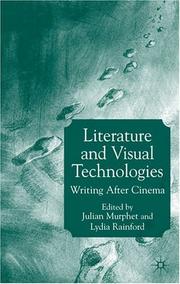
ISBN: 1403913080 Year: 2003 Publisher: Basingstoke Palgrave Macmillan
Abstract | Keywords | Export | Availability | Bookmark
 Loading...
Loading...Choose an application
- Reference Manager
- EndNote
- RefWorks (Direct export to RefWorks)
This is the first major collection of essays specifically to address the impact of visual technologies on the production of literature in the twentieth century. 'Literature and Visual Technologies' investigates the manifold effects which a visual century has wrought upon literary conventions. From the influence of Mutoscope parlours on Joyce's fiction, to the interrelation between Peter Greenaway's 'A TV Dante', the collection consists of an integrated series of high-level intellectual engagements with a hundred years of cultural revolution and covers the whole twentieth-century, from silent to digital film.
Literature --- Film --- Mass communications --- Motion pictures and literature. --- Television and literature.
Book
ISBN: 9780521518604 0521518601 9780511575723 9781107404366 9780511480843 0511480849 9780511479175 0511479174 0511480040 9780511480041 0511575726 0511477651 9780511477652 1107191750 1282001698 9786612001697 0511476191 1107404363 Year: 2009 Publisher: Cambridge, UK ; New York : Cambridge University Press,
Abstract | Keywords | Export | Availability | Bookmark
 Loading...
Loading...Choose an application
- Reference Manager
- EndNote
- RefWorks (Direct export to RefWorks)
Apollo was the ancient god of light and the divine patron of the arts. He is therefore a fitting metaphor for cinematography, which is the modern art of writing with moving light. This book interprets films as visual texts and provides the first systematic theoretical and practical demonstration of the affinities between Greco-Roman literature and the cinema. It examines major themes from classical myth and history such as film portrayals of gods, exemplified by Apollo and the Muses; Oedipus, antiquity's most influential mythic-tragic hero; the question of heroism and patriotism in war; and the representation of women like Helen of Troy and Cleopatra as products of male desire and fantasy. Covering a wide range of European and American directors, genres and classical authors, this study provides an innovative perspective on the two disciplines of classics and cinema and demonstrates our most influential medium's unlimited range when it adapts ancient texts.
Film --- Classical literature --- Motion pictures and literature. --- History and criticism. --- Motion pictures and literature --- Literature and motion pictures --- Moving-pictures and literature --- Literature --- History and criticism --- Arts and Humanities --- History
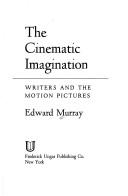
ISBN: 0804426430 Year: 1972 Publisher: New York, : Ungar,
Abstract | Keywords | Export | Availability | Bookmark
 Loading...
Loading...Choose an application
- Reference Manager
- EndNote
- RefWorks (Direct export to RefWorks)
Film --- Motion pictures and literature. --- Motion pictures and literature --- #SBIB:309H301 --- Literature and motion pictures --- Moving-pictures and literature --- Literature --- De communicator in de verschillende media (pers, omroep, film, boekenindustrie, ...) --- Cinéma et littérature --- Cinéma et littérature
Periodical
ISSN: 1753643X 17536421 Year: 2007 Publisher: Bristol Intellect
Abstract | Keywords | Export | Availability | Bookmark
 Loading...
Loading...Choose an application
- Reference Manager
- EndNote
- RefWorks (Direct export to RefWorks)
Film adaptations --- Motion pictures and literature --- Film adaptations. --- Motion pictures and literature. --- Literature and motion pictures --- Moving-pictures and literature --- Literature --- Adaptations, Film --- Books, Filmed --- Filmed books --- Films from books --- Motion picture adaptations --- Motion pictures --- History and criticism --- Adaptations --- Film
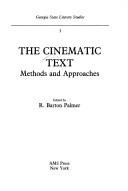
ISBN: 0404632033 Year: 1989 Publisher: New York, N.Y. AMS
Abstract | Keywords | Export | Availability | Bookmark
 Loading...
Loading...Choose an application
- Reference Manager
- EndNote
- RefWorks (Direct export to RefWorks)
Film --- Film criticism. --- Motion picture plays --- Motion pictures and literature. --- Motion pictures. --- Narration (Rhetoric) --- History and criticism. --- Narration (Rhetoric).
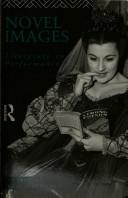
ISBN: 9780415826358 9781135983970 1135983976 9780203467732 0203467736 1299744427 9781299744424 9781135984328 1135984328 9781135984250 1135984255 9781135984397 1135984395 0415826357 0415091020 9780415091022 0415091039 9780415091039 Year: 2013 Publisher: London : Routldege,
Abstract | Keywords | Export | Availability | Bookmark
 Loading...
Loading...Choose an application
- Reference Manager
- EndNote
- RefWorks (Direct export to RefWorks)
Cinéma et littérature. --- Adaptations cinématographiques. --- Littérature anglaise --- Littérature américaine --- Film --- Literature --- Film adaptations. --- Motion pictures and literature.
Book
ISBN: 3878082541 Year: 1984 Publisher: Tübingen Narr
Abstract | Keywords | Export | Availability | Bookmark
 Loading...
Loading...Choose an application
- Reference Manager
- EndNote
- RefWorks (Direct export to RefWorks)
Literary semiotics --- Film --- 316.77 --- Motion pictures --- -Motion pictures and literature --- #SBIB:309H526 --- #SBIB:309H1324 --- Cinema --- Feature films --- Films --- Movies --- Moving-pictures --- Audio-visual materials --- Mass media --- Performing arts --- Literature and motion pictures --- Moving-pictures and literature --- Literature --- Communicatiesociologie --- Philosophy --- Psychologie van de audiovisuele boodschap --- Films met een amusementsfunctie en/of esthetische functie: film en literatuur --- History and criticism --- Motion pictures and literature. --- Philosophy. --- 316.77 Communicatiesociologie --- Motion pictures and literature
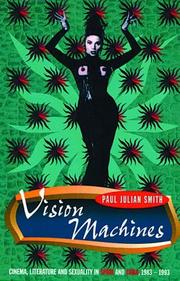
ISBN: 1859840795 Year: 1996 Publisher: London Verso
Abstract | Keywords | Export | Availability | Bookmark
 Loading...
Loading...Choose an application
- Reference Manager
- EndNote
- RefWorks (Direct export to RefWorks)
Spanish-American literature --- Social problems --- Film --- Spanish literature --- Spain --- Cuba --- Motion pictures and literature --- Motion pictures --- Social problems in motion pictures. --- Social aspects
| Listing 1 - 10 of 63 | << page >> |
Sort by
|

 Search
Search Feedback
Feedback About UniCat
About UniCat  Help
Help News
News